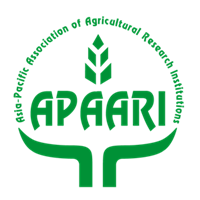Science and Technology in Civil Society Innovation Trajectory of Spirulina Algal Technology
The role of civil society in influencing public opinion towards more democratic and developmental approaches is now well-recognised in diverse fields such as health, education, livelihoods, issues relating to disadvantaged social groups and the environment. Yet, science and technology in India is predominantly seen as the preserve of the state, and more recently the market. In the linear model of innovation, civil society is seen at best as having a role in extension or the delivery of technology produced elsewhere. This paper, a study of science in civil society, questions this assumption through the case study of the work of a civil society-led initiative in spirulina algal technology. It highlights the need for an institutional transformation of the scientific establishment into learning organisations if they are to focus on development with a pro-poor or human face.
Related Resources
I used to be ashamed. The influence of an educational program on tribal and non-tribal childrens knowledge and valuation of wild food plants
This study examines the influence of an extra-curricular educational program on children's knowledge and cultural valuation of wild food plants, which are an important component of their diets. This program aims to reinforce children's traditional knowledge and values around biological...
Evaluation as a multi-stakeholder learning process : the Programme for Capacity and Theory Building for Universities and Research Centres in Endogenous Development (CAPTURED ) in Bolivia , Ghana and India
An evaluation is a particular multi-stakeholder event during which different actors share and analyse results after several years. If the evaluation has a strong formative purpose, the evaluation team is requested to facilitate a learning process involving all key actors....
Similarities Among FARA-Led IAR4D Innovation Platforms
Multi-stakeholder partnerships network which is typified by the FARA-led Integrated Agriculture Research for Development (IAR4D) of the SSA-Challenge Program is an innovation platform (IP) composed of stakeholders bound together by their individual interests in a shared commodity or outcome. The...

Report on Prioritization of Demand-driven Agricultural Research for Development in Bangladesh
The International Food Policy Research Institute (IFPRI) partnered with the Asia-Pacific Association of Agricultural Research Institutions (APAARI) in 2011 to conduct a series of policy dialogues on the prioritization of demand-driven agricultural research for development in South Asia. Dialogues were conducted with...

FairTrade’s theory of change: an evaluation based on the cooperative life cycle framework and mixed methods
This study presents a quasi-experimental analysis of the impact of FairTrade certification on the commercial performance of coffee farmers in Tanzania. In doing so the study emphasises the importance of a well-contextualised theory of change as a basis for evaluation...


